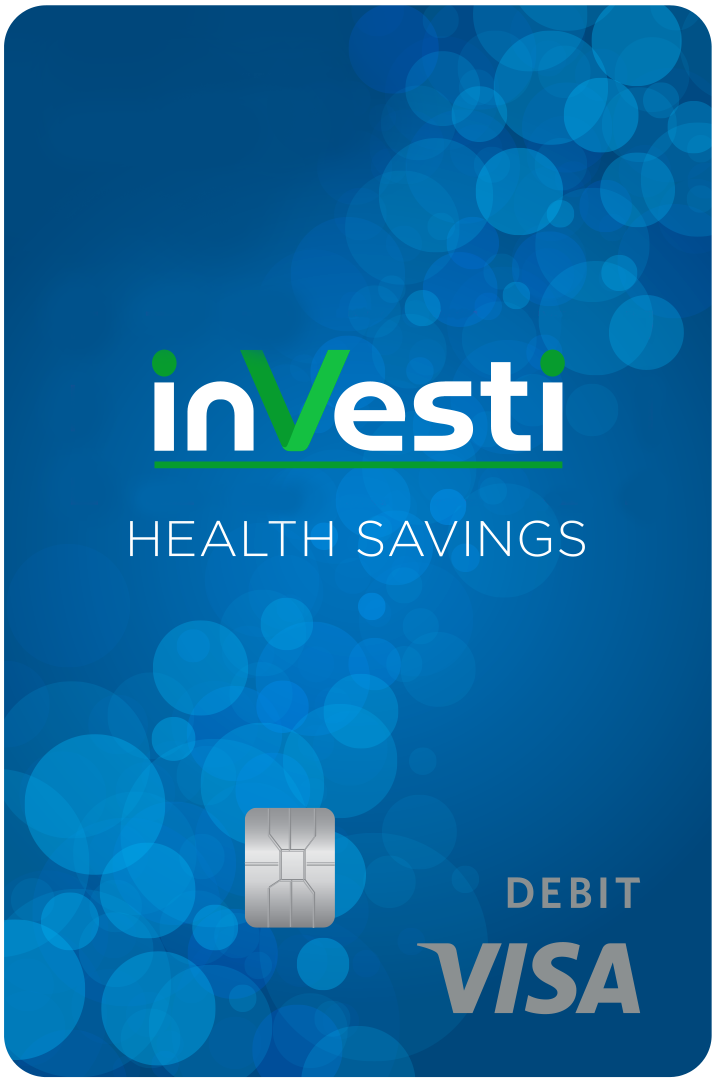HSAs (Health Savings Account)
The inVesti HSA program is available to Financial Advisors and Business Owners as well as PEO providers. The HSA program that we offer is available independently or as a bundled offering with our 401(k)s and our IRAs for additional savings.
Key benefits and takeaways:
- A health savings account (HSA) lets a participant set aside pretax income to cover health care costs that the insurance doesn't pay for.
- HSAs have no "use-it-or-lose-it" provision. Any funds still in the plan at the end of the year can be rolled over indefinitely.
- Contributions are tax-deductible, so they lower a tax bill. Contributions may be deducted from a paycheck.
- Distributions are tax-free if they're used to pay for Qualified Medical Expenses (QMEs). QMEs include dental and vision care.
- Distributions for QMEs are literally TAX-FREE money and can be taken at the time of service or any time thereafter.
Who Can Open a Health Savings Account?
According to federal guidelines, anyone can open and contribute to an HSA if you:
- Are covered under a high-deductible health plan (HDHP)
-
Are not covered by any other non-HDHP plan, such as that for
a spouse (there are exceptions
for certain plans with limited coverage, such as dental, vision and disability) - Are not enrolled in Medicare
- Are not claimed as a dependent on someone else's tax return

What Qualifies as a High-Deductible Health Plan (HDHP)?
An HDHP is a healthcare plan that trades relatively low premiums for relatively high deductibles, as its name implies. But to officially qualify as an HDHP, the medical insurance must be a primary health policy and meet a certain deductible amount and a certain maximum out of pocket designated by the IRS.
How Does a Health Savings Account Work?
Contributions to the inVesti HSA are tax-deductible or can be made as a pre-tax payroll deduction. Distributions are tax-free provided they're used to pay for qualified medical expenses (QMEs) which include much more than just the care covered by the health insurance itself, including, but not limited to, dental and vision care expenditures. Any money that is in your account at the end of the year remains in your account to pay for future qualified medical expenses. And it does so indefinitely. The account and its funds belong to you, and you retain ownership even if you change health insurance plans, change jobs, or retire. While it's in the account, the money grows tax-free.
How Can I Use HSA Money?
The funds in your HSA can be used to pay for qualified medical expenses (QMEs) incurred (after the HSA has been established) by you, your spouse, and your dependents. The IRS establishes what is and what is not a qualified medical expense, detailed in https://www.irs.gov/publications/p969.
Qualified expenses include amounts paid to diagnose, cure, mitigate, treat, or prevent disease, and to treat conditions that affect any part or function of the body.
Keep in mind that you can use the account for more than the expenses you incur under your main health insurance plan. For example, if your plan doesn't cover dental or vision care, HSA could be especially helpful in meeting these bills.
An HSA can pay for QMEs at the time of service or any time thereafter up until a year after the HSA holder’s death.
If a participant is 64 or younger and withdraws funds for a non-qualified medical expense, they will owe taxes on the money (which will be taxed as income), plus a 20% penalty. If they are 65 or over, or disabled at any age, they will still owe taxes on the amount but be spared the penalty.
Investing with your HSA
The inVesti HSA plan allows a participant to invest cash in the account into any of the 1000s of mutual funds we offer. The earnings on these investments are tax-free and remain in the account until such time as the participant distributes them.
Getting the Most From an HSA?
Money contributed to an HSA and then distributed for a QME is money that NEVER GETS TAXED. The short-term benefit of using an HSA is that for each QME incurred and paid for from the account, the participant saves the percentage equal to their income tax rate. The long-term strategy for an HSA is for the participant to incur QMEs but not take a distribution from the account at that time. This allows the funds in the HSA to grow from investment. Those investment returns can be used to pay (via tax free distribution) for even more QMEs.